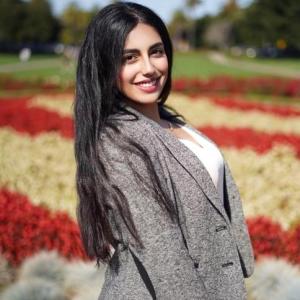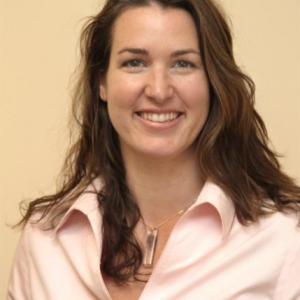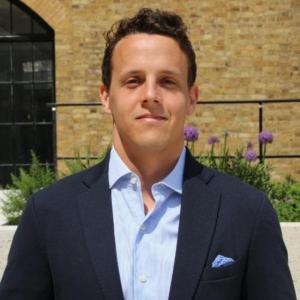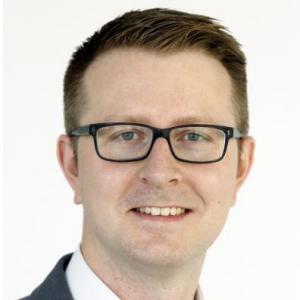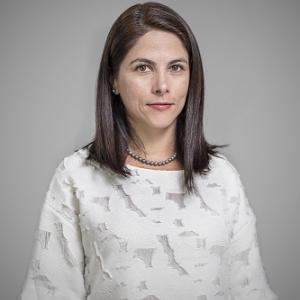Short description:
Malu A. C. Gatto is Assistant Professor of Latin American Politics at the Institute of the Americas at University College London (UCL). Previously, she was a post-doctoral researcher at the Department of Political Science at the University of Zurich. Gatto's work explores questions about women's political representation and participation, gendered political behavior and policy-making with a regional focus on Latin America, especially Brazil. Her academic research has been published in the JPLA and PS. She has also provided analysis on Brazilian politics and women's political representation for, among others, the Financial Times, the Washington Post, the BBC, and El País. She holds a BA from Barnard College (2011), and an MSc (2012) and DPhil (2016) from the Department of Politics and International Relations at the University of Oxford.
Short description:
Dr Aran Martin is a Research Fellow at the Melbourne School of Government and Editor-in-Chief of the Journal Global Change, Peace and Security. From 2008-2014 he was a Project Manager with the Centre for Dialogue at La Trobe University. His research interests include international relations, conflict resolution, environmental politics and global civil society.
Dr Martin is a member of the Australian Attorney General’s Department, Countering Violent Extremism Research Panel and the Victorian Department of Premier & Cabinet's Research Institute on Social Cohesion.
His most recent project was a qualitative review commissioned by the Department of Foreign Affairs and Trade of the experience of Australian government personnel involved in conflict prevention, peacemaking and peacebuilding programming. Its aim was to derive lessons learnt for the Department to improve its capacity to work more effectively upstream to address the drivers of conflict and to develop new policy and programming tools for early action in response to emerging risks of conflict and instability.
Short description:
Dr Katherine Saunders-Hastings is Assistant Professor/Lecturer in Latin American Studies at University College London’s Institute of the Americas, where she teaches and researches on urban and political anthropology. Katherine’s research interests encompass issues of violence, (in)security, illicit economies, citizenship, and governance in Latin American cities. Her recent work has focused particularly on the effects of changing patterns of gang violence in Central America on local life and governance practices.
Katherine was a Postdoctoral Fellow at Stanford University’s Centre on Democracy, Development, and the Rule of Law. She earned her doctorate in Socio-Legal Studies from the University of Oxford in 2015 and holds a B.A. in Anthropology and History from McGill University and an MPhil in Latin American Studies from the University of Cambridge. She has worked with the International Centre for the Prevention of Crime (Montréal, Canada) and the Asociación para el Avance de las Ciencias Sociales (Guatemala City, Guatemala). Her research has been supported by fellowships from the Social Sciences and Humanities Research Council of Canada, the Clarendon Fund, and the Harry Frank Guggenheim Foundation.
Short description:
Sara Ketabi is an international public figure known for her foreign policy entrepreneurship, political economy and global governance research, and advising international development and sustainability (IDS) for the United Nations. She has led policy consulting for developing governments via Hale and CollatEd Lab, directly influencing legislation and pioneering evidence-informed strategy and decision-making.
Short description:
I am a senior lecturer in environmental politics and public policy at the University of Auckland in Aotearoa New Zealand. Prior to joining the University of Auckland, I worked in South Korea, Australia, Canada and England in a number of government, research and teaching roles. I holds a PhD in political science from Simon Fraser University (2012), a Master of Asia Pacific Policy Studies from the University of British Columbia and a BA (Hons) from the University of Waterloo. My current research interests focus on energy democracy and the policy settings that support it in diverse national contexts.
Short description:
I am an economist at University College of London.
My research is mainly focused on how to apply Behavioural Economics concepts to environmental issues and climate change. I also have a research interest in Economics of Education and Development Economics.
I hold a BSc in Economics from University of Genoa, an MSc in International Economics from University of Pavia, an MSc in Economics from UCL and a PhD in Applied Economics.
I've worked in the development economics field, with BRAC in Uganda and IFS in India.
I'm currently working as Senior Teaching Fellow and Programme Leader at UCL Bartlett, in the MSc of Economics and Policy of Energy end the Environment (EPEE).
Recognised Senior Fellow of the Higher Education Academy
Short description:
Dr Jennifer Lees-Marshment is an Associate Professor and an expert in political management/administration, political marketing and public input into government policy. Author/editor of 15 books, she is editor of the book series Palgrave Studies in Political Marketing and Management, the Routledge Handbook of Political Marketing (2012) and lead author of Political Marketing: principles and applications 3rd edition (Routledge 2019). Her book The Ministry of Public Input was awarded the International Association for Public Participation (IAP2) Australasia Research Award which acknowledges important contributions to the body of public participation knowledge. Jennifer was academic advisor to the policy engagement tool Vote Compass in the 2014 and 2017 New Zealand elections, and she is on the research working group for IAP2 Australasia. See www.lees-marshment.org.
Short description:
Combining my international expertise in public affairs, government relations, and reputation management, I work with organisations operating across different markets to develop and advise multi-country and global communications strategies to manage, mitigate or leverage regulatory, political, and reputational risks and opportunities.


